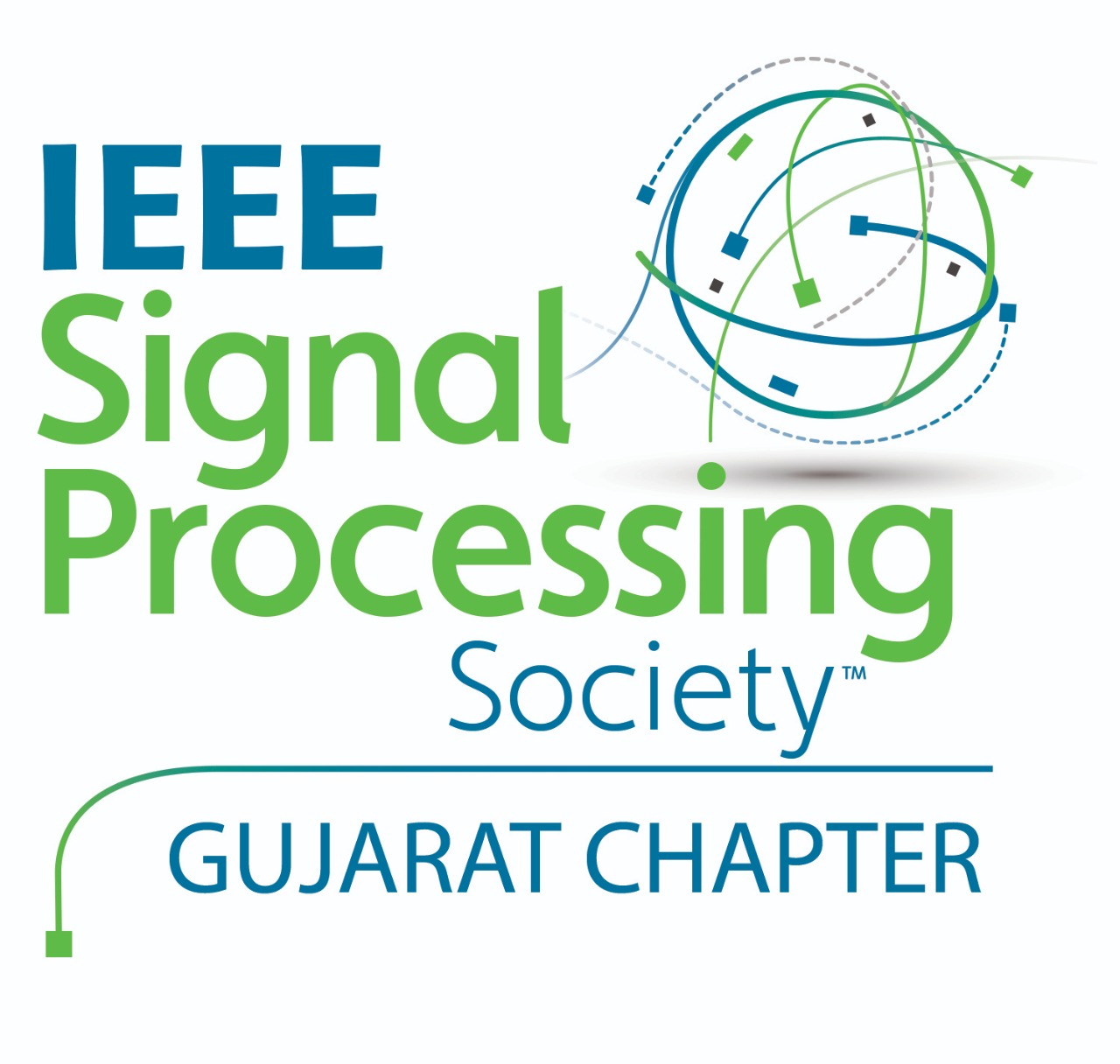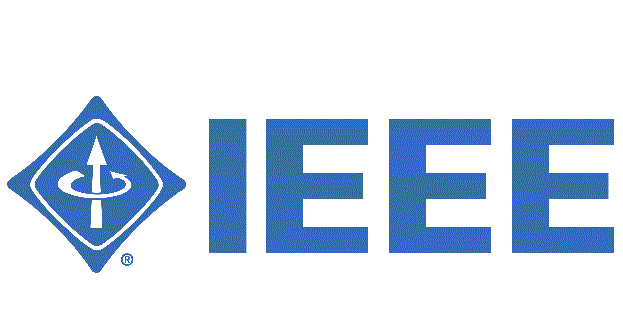NeTSiP 2024
Theme: Signal Processing & Artificial Intelligence in Health Care
25-26 July 2024
Venue: Marwadi University, Rajkot (Offline Mode)
Keynote Speakers
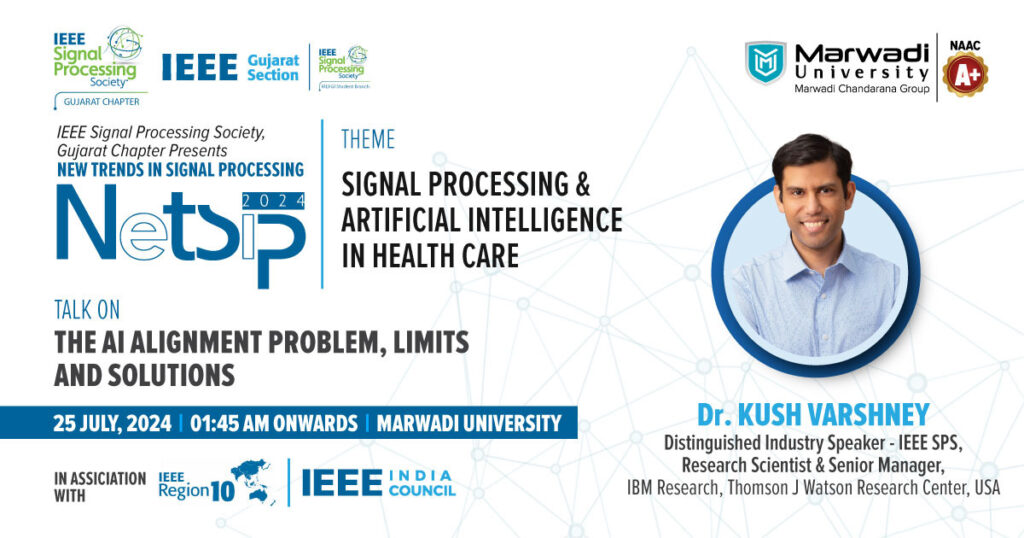
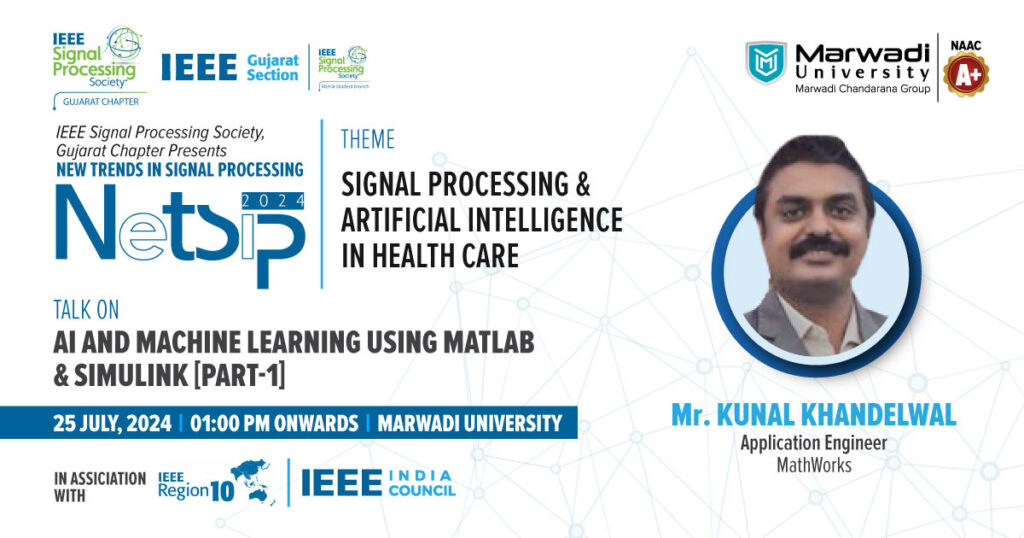
Topic- AI and Machine Learning using MATLAB & Simulink
Explore the workflow for using artificial intelligence techniques such as deep learning and machine learning to build digital health applications that comply with global medical regulations. MATLAB and Simulink enable engineers to speed development of medical device software and hardware by efficiently integrating and automating the phases of design, implementation, and verification. Learn the essential aspects of developing machine learning and deep learning models for classifying EKG signals. Explore topics like signal annotation, and see how techniques like wavelet scattering can be used with machine learning and deep learning techniques and automated code generation for deploying these algorithms.
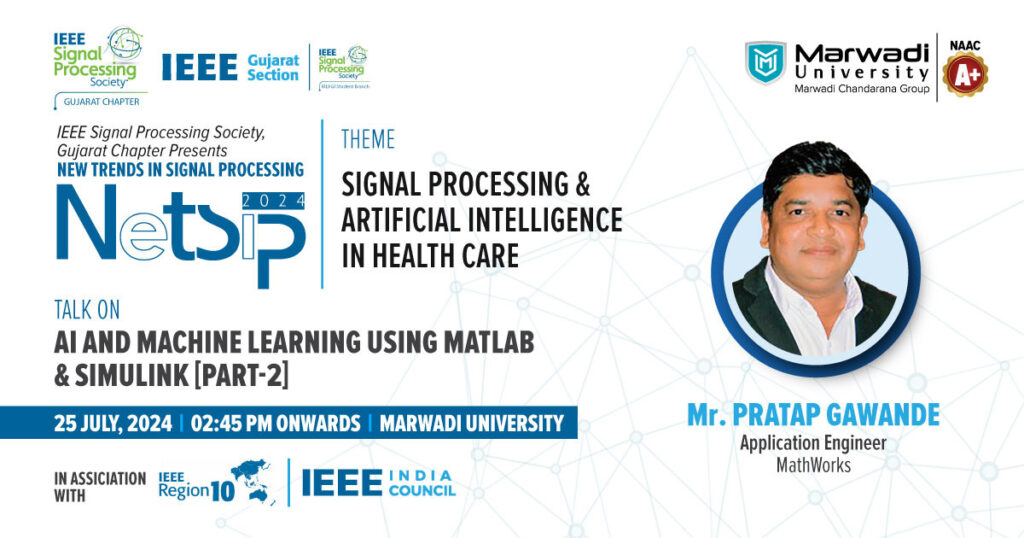
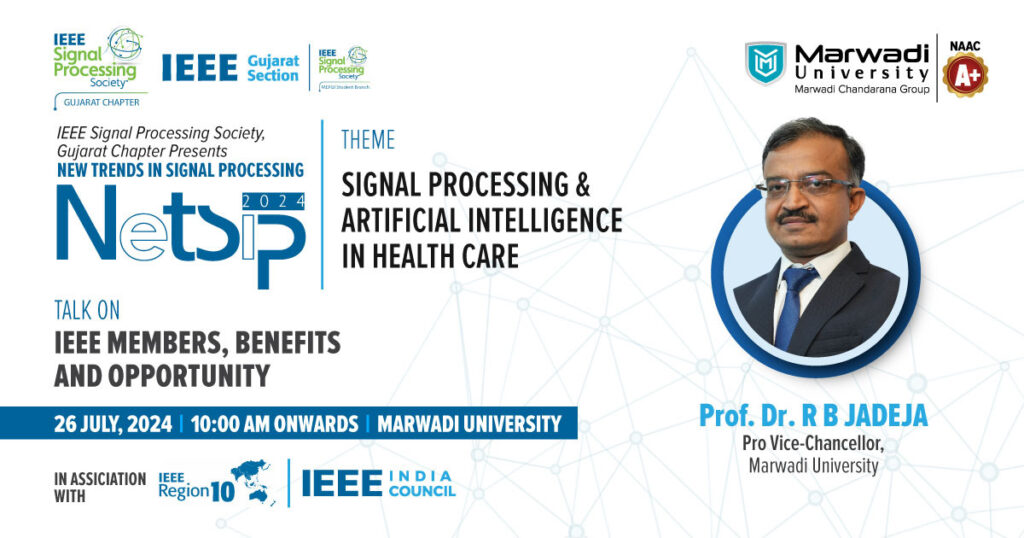
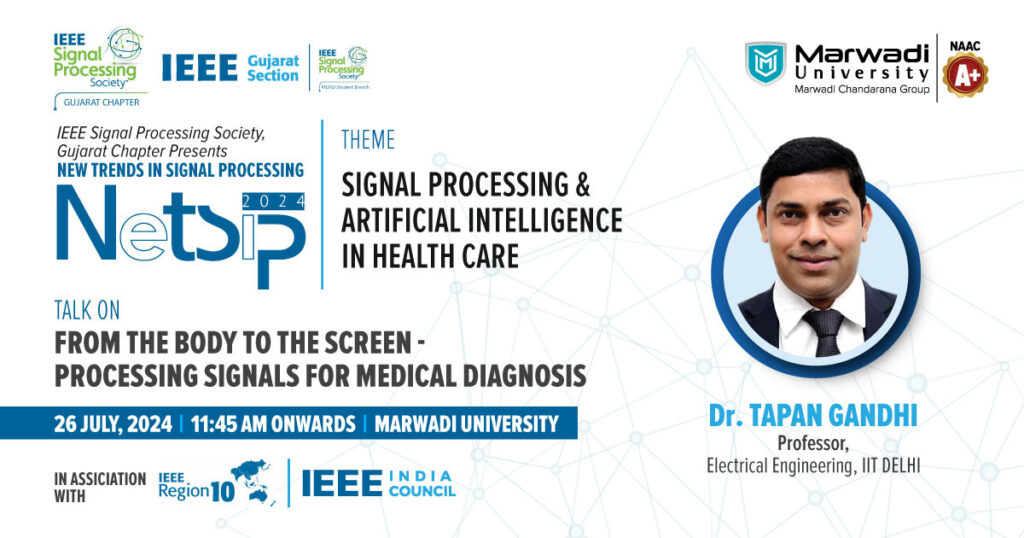
TITLE: From the Body to the Screen: Processing Signals for Medical Diagnosis
The human body generates a symphony of electrical signals, each carrying vital information about our health. From the Body to the Screen: Processing Signals for Medical Diagnosis delves into the fascinating world of biomedical signal processing, the engineering field that bridges the gap between these internal signals and the visual representations displayed on medical screens for better rediction, diagnosis, prognosis or may be assistive applications.
This work explores the intricate methods used to extract, analyze, and interpret these biosignals. It sheds light on how electrocardiograms ECGs) translate heart rhythms into recognizable waves, or how electroencephalograms (EEGs) capture brain activity as electrical patterns.
The abstract further emphasizes the crucial role of signal processing in extracting meaningful data from raw biosignals. It highlights techniques used to overcome challenges like noise and distortion, ensuring accurate diagnoses. By processing these signals effectively, medical professionals gain valuable insights into a patient’s health, enabling early detection and effective treatment of various medical conditions.
In essence, this work explores how biomedical signal processing acts as a translator, transforming the body’s silent language of electrical signals into a clear visual representation on the screen, ultimately empowering medical professionals to make informed diagnoses and improve patient outcomes.
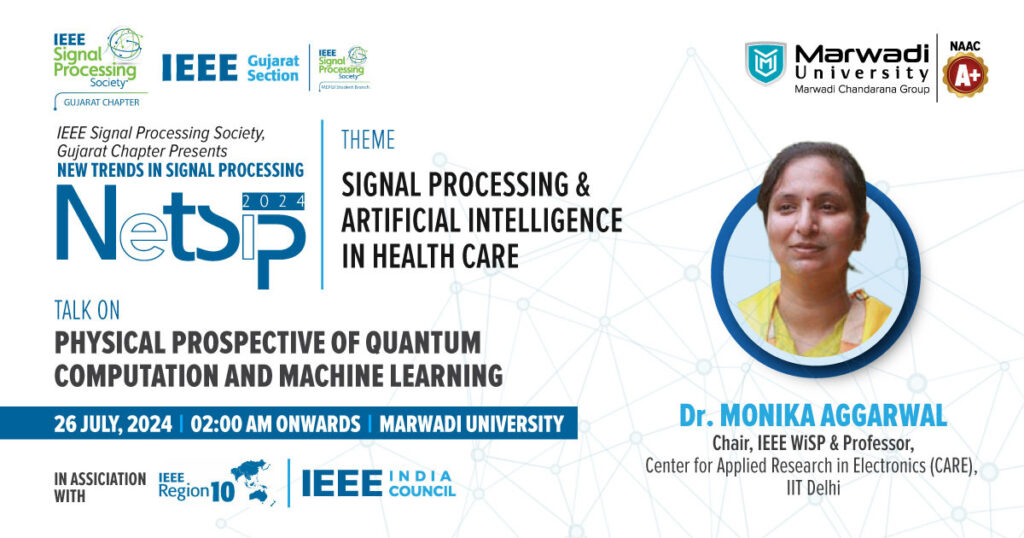
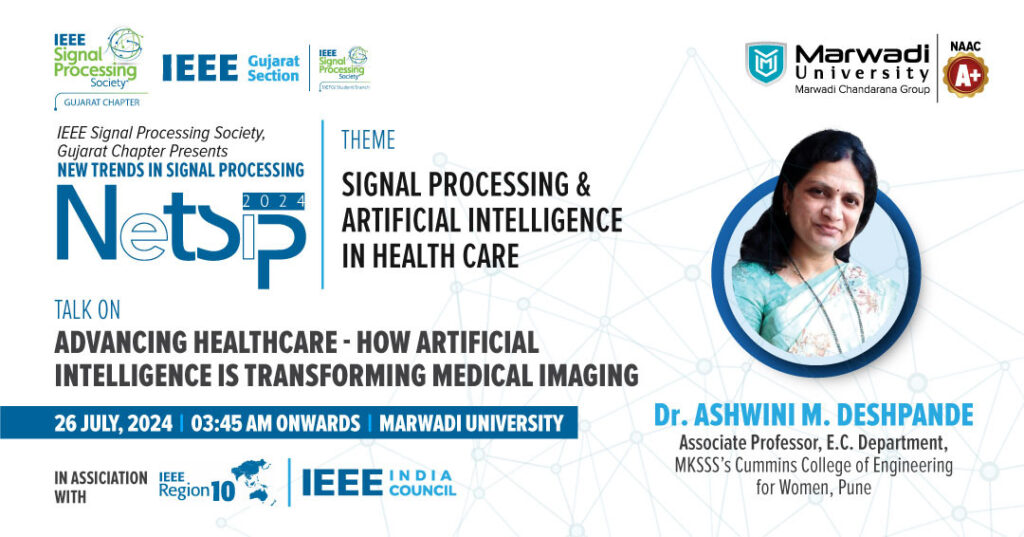
Title: Advancing Healthcare: How Artificial Intelligence is Transforming Medical Imaging
The talk will focus on how artificial intelligence (AI) has revolutionized the field of medical imaging. This session aims to provide an overview of using AI technology to enhance medical imaging for improved diagnostic accuracy and patient care. Participants will learn how AI-powered algorithms transform image collection, processing, and interpretation procedures across imaging modalities, such as X-ray, MRI, CT, ultrasound, etc. Further, the session will cover deep learning algorithm for automated image segmentation, anomaly detection, and classification, along with case studies showcasing improvements in early disease detection and individualized treatment planning. Additionally, the discussion will address the challenges and ethical concerns of using AI in therapeutic settings, the value of open models and high-quality data, various research avenues, and forthcoming advancements such as accelerating AI algorithms.

